As we remember the declaration of Martial Law on Sept. 21, 1972, Filipino filmmakers from both past and present continue to resist historical revisionism and foretell a tragic piece in our history. Never forget. Never again.
From renowned Filipino auteurs to exciting storytellers of a new generation, here are six essential films about martial law that you definitely don’t want to miss.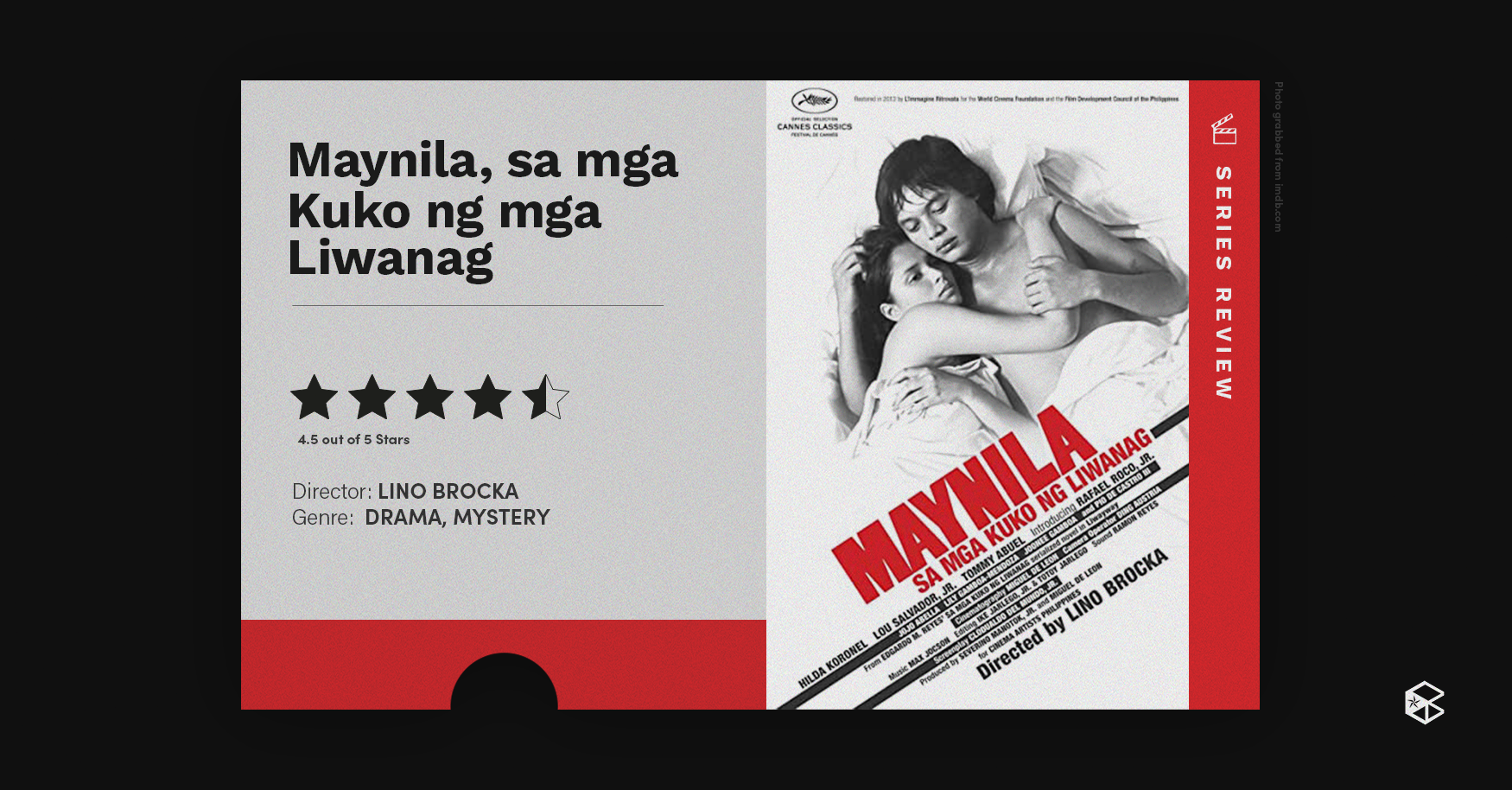
Considered as one of the greatest Filipino films of all time, Maynila, sa mga Kuko ng Liwanag, the late Filipino filmmaker Lino Brocka crafted a thought-provoking film based on the novel Sa mga Kuko ng Liwanag by Filipino novelist Edgardo M. Reyes.
The film follows 21-year-old fisherman Júlio Madiaga (Bembol Roco) from Marinduque who goes to Manila in search of his lover Ligaya (Hilda Koronel). With the means of surviving the urban city life, Júlio contends into the world of crime and prosititution.
Released in 1975, the film’s neo-realism portrays the city of Manila as a character in the story. It depicts the people from rural provincial areas seeking a better life in the city and succumbing to the abuse of power. Moreso, the film presents a commentary on urban poverty amidst the Marcos regime.
Stream Maynila, sa mga Kuko ng Liwanag as part of Film Development Council of the Philippines (FDCP) Channel’s Php 99 monthly subscription plan.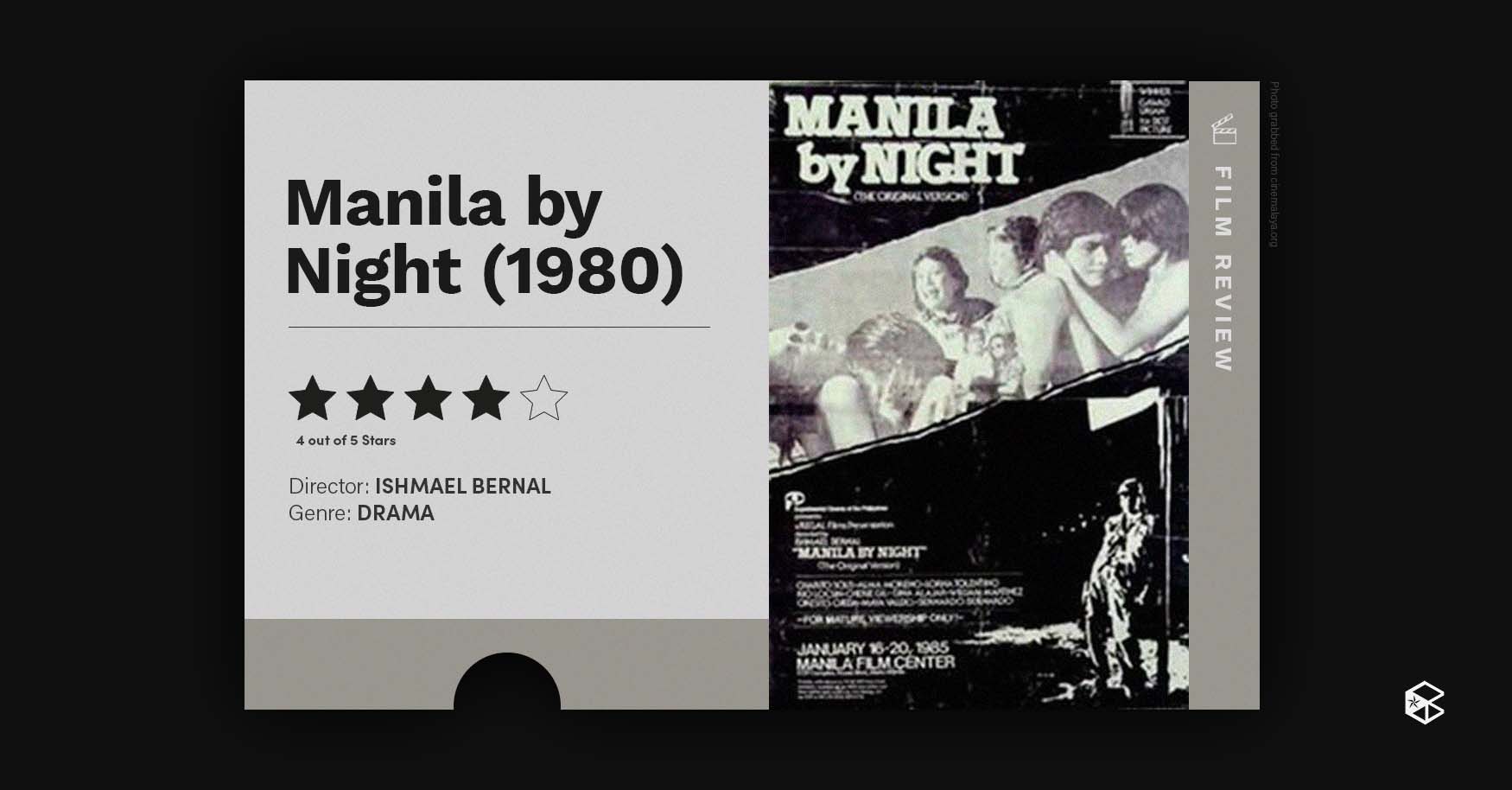
Like her desire for beauty and perfection, former First Lady and convicted criminal Imelda Marcos has been loud and proud of the capital city’s alluring image in Philippine society. But the late Filipino filmmaker Ishmael Bernal captured the other side of the city with his controversial 1980 film Manila by Night, later changed to City After Dark at the request of the former First Lady, believing that the film tarnishes “her” city’s beauty.
With Manila being a city of hope, the film then portrays a “city after dark” with varying narratives showcasing the true natures of prostititution, drug addiction, and unemployment.
The film features an ensemble of renowned Filipino actors including Gina Alajar, Charito Solis, Cherie Gil, Rio Locsin, Lorna Tolentino, Alma Moreno, and William Martinez.
Stream Manila by Night for free at the FDCP Channel until Sept. 30, in celebration of Philippine Film Industry Month.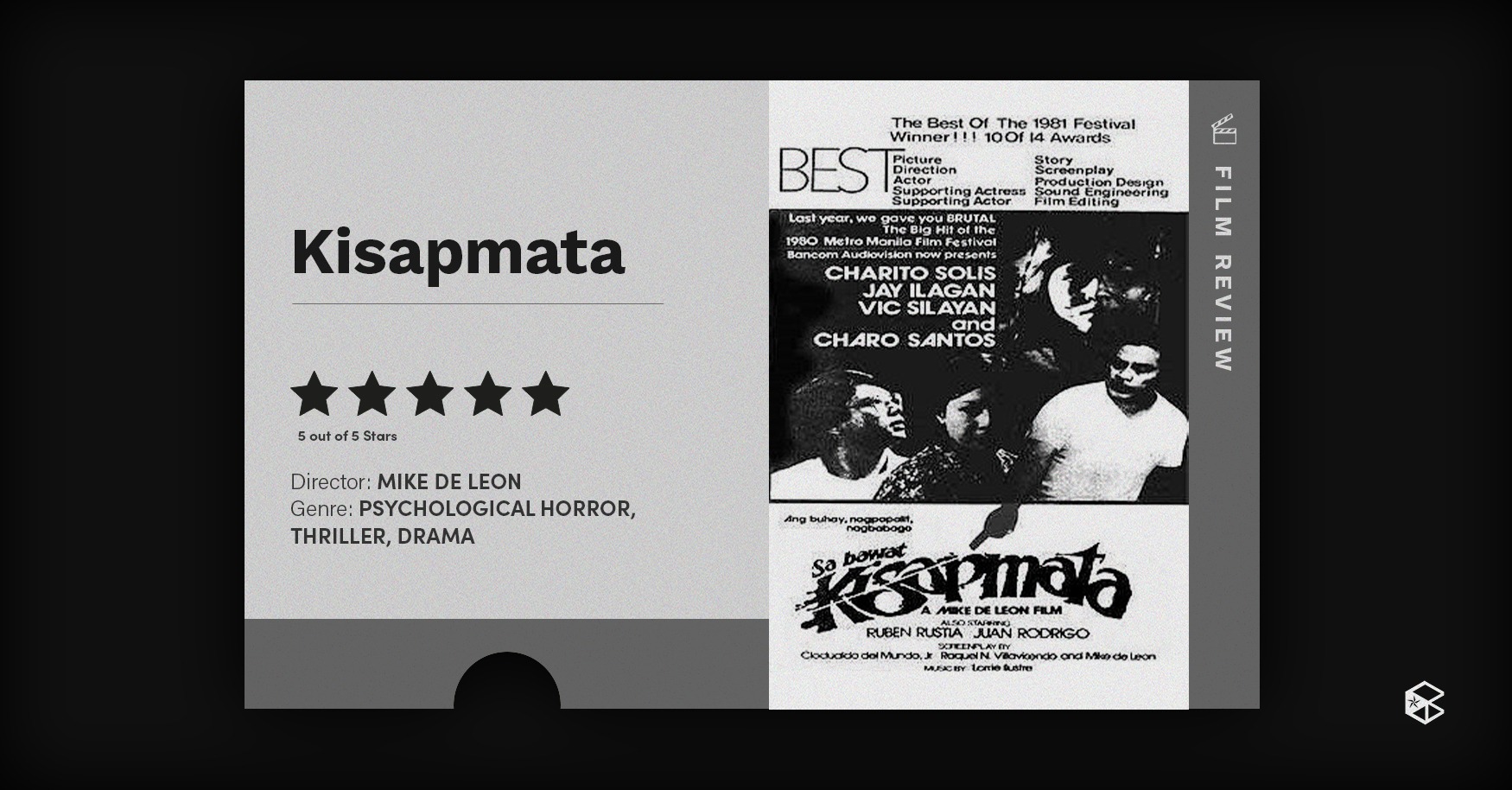
The first of two films of Filipino filmmaker Mike de Leon on our list, the 1981 psychological horror film Kisapmata is a film you wouldn’t want to miss. For one, it is inspired by the short story “The House on Zapote Street” by Filipino writer and journalist Nick Joaquin. It cemented de Leon as one of the pioneering filmmakers of his generation.
The film follows retired police officer Sgt. Diosdado "Dadong" Carandang (Vic Silayan) and his patriarchal control on his daughter Mila’s (Charo Santos) personal life, including her marriage with then-suitor and husband Noel Manalansan (Jay Ilagan). Dadong’s abuse of power lies with his incestuous and domineering behavior.
With acts of violence and wrongdoings done behind closed doors in the Carandang residence, the film brings to life the shady criminal acts of the Marcos regime. Surely, Dadong’s character is a downright representation of a dictator unwilling to treat their fellow people as human beings.
Kisapmata is currently available on YouTube. 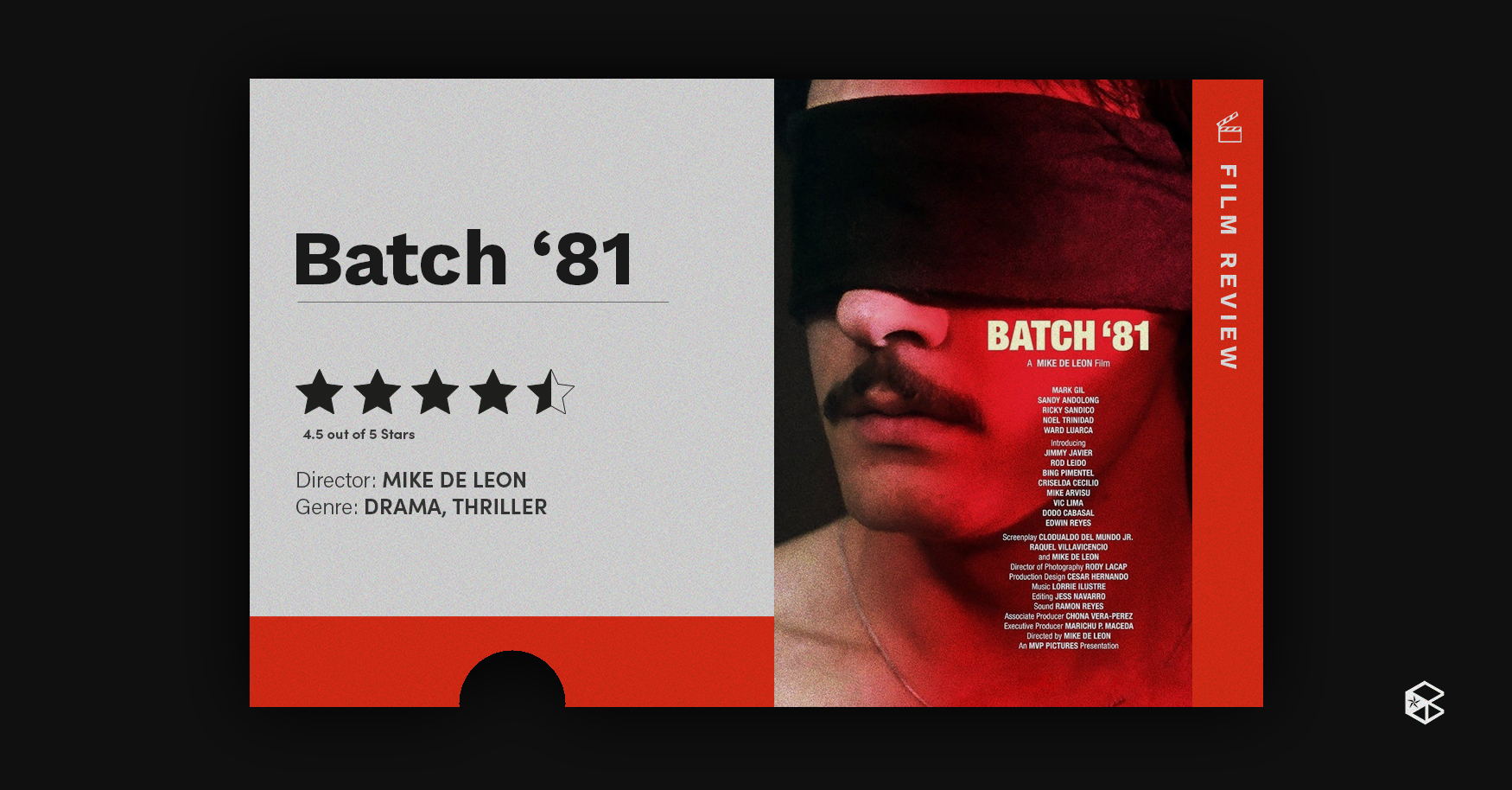
“Here, master!” If you’re done watching Kisapmata, then de Leon’s next film Batch ‘81 is a suitable choice for a double feature.
The film follows university student Sid Lucero’s (Mark Gil) aspirations in joining the Alpha Kappa Omega fraternity. Through his perspective, the harsh fascist reality of fraternities in the Philippines becomes a study on the psyche of its broken system. From a supposedly acceptance into brotherhood turns into a survival of the fittest, exposing the senseless violent acts committed in the fraternity.
In a career-defining role, Gil puts the audience into the driver’s seat, allowing the audience to bear witness of the abusive power that was deemed “acceptable” by the majority. What can be considered as the Philippines’ version of Stanley Kubrick’s A Clockwork Orange, the story is still relevant in contemporary times.
Batch ‘81 is currently available on YouTube.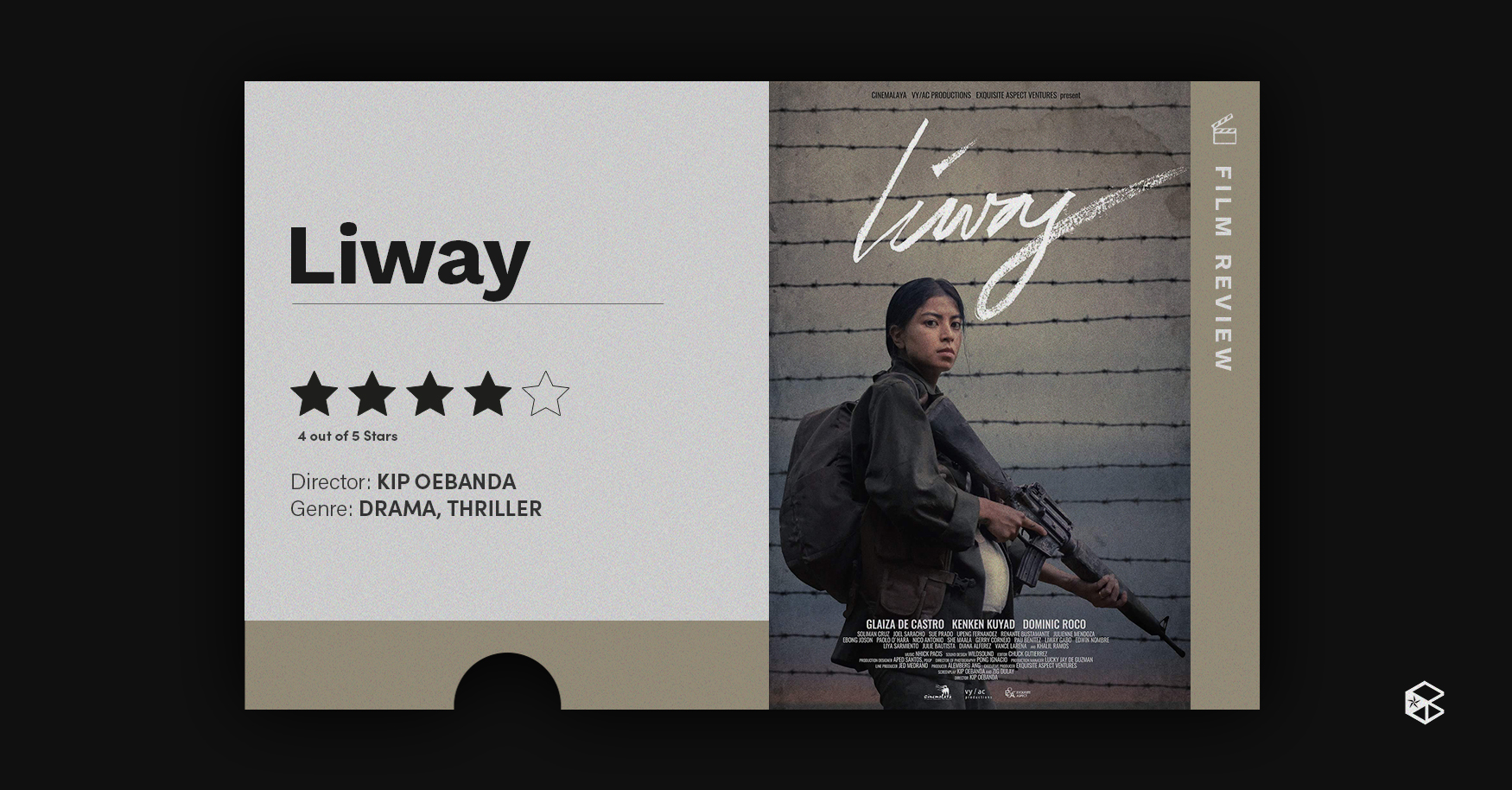
Based on a true story, the film follows director Kip Oebanda’s life as a young boy named Dakip (Kenken Nuyad) and his experiences living with his parents Day (Glaiza de Castro) and Ric (Dominic Roco) inside a makeshift prison in Camp Delgado, a military camp for rebels and criminals of the New People’s Army.
Dakip’s mother, better known as Commander Liway, becomes a vessel for Dakip in search of comfort and protection at such a young age. Liway would tell her son stories of Philippine mythology, specifically about the guardian diwata of Mount Kanlaon, which fictionalizes the story of the resistance against the Marcos regime.
Stories forged from personal experiences manifest a desire for showcasing truth and what really happened during the director’s childhood. This film is to resist the historical revisionism of the Marcos family in pushing the narrative forward in contemporary times.
Unfortunately, Liway is not available for streaming at the moment. Netflix Philippines should definitely get a hold of this eye-opening film. 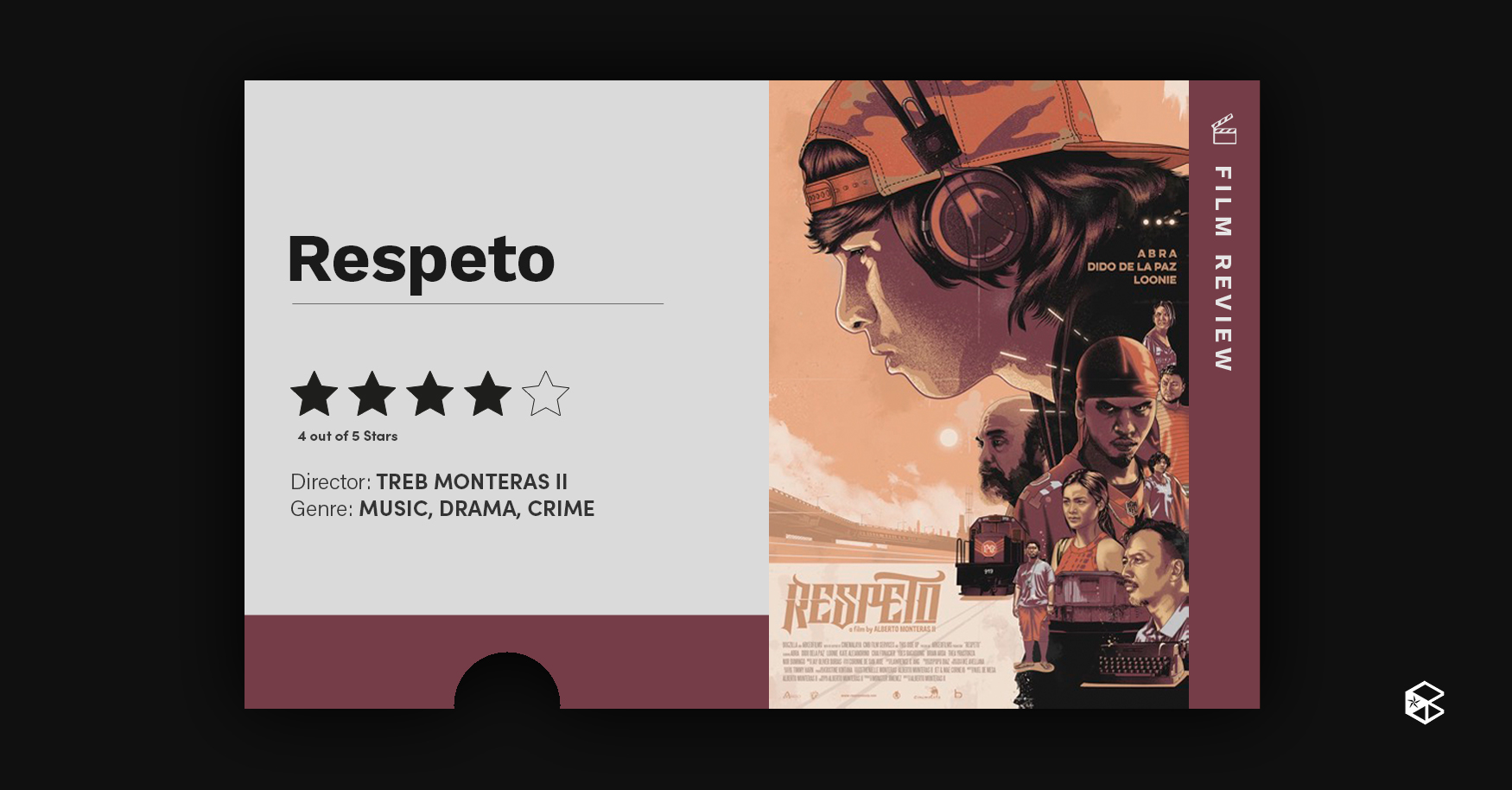
Directed by Filipino filmmaker and music video director Treb Monteras II, the film follows aspiring young rapper Hendrix (Abra) who dreams of becoming one of Philippine hip-hop’s greats. Unfortunately, he ends up turning into the world of crime and poverty until he strikes up an unexpected friendship with Doc (Dido dela Paz), an elderly bookstore owner and an old poet with a haunted past brought by the martial law regime.
It’s no stranger that Abra is one of underground Pinoy rap’s finest. His artistry in his character brings forth a passionate love affair with the craft, with the means of getting by with the highs and lows of the marginalized society. On the other hand, Doc is a character still wounded by the horrid experiences during martial law.
But despite the disparity between the past and the present, words mold what we’ve always wanted to tell and what we want to tell no matter the circumstances.
Respeto is available to stream for free until today, spearheaded by the UP Film Institute in partnership with Arkeofilms.


